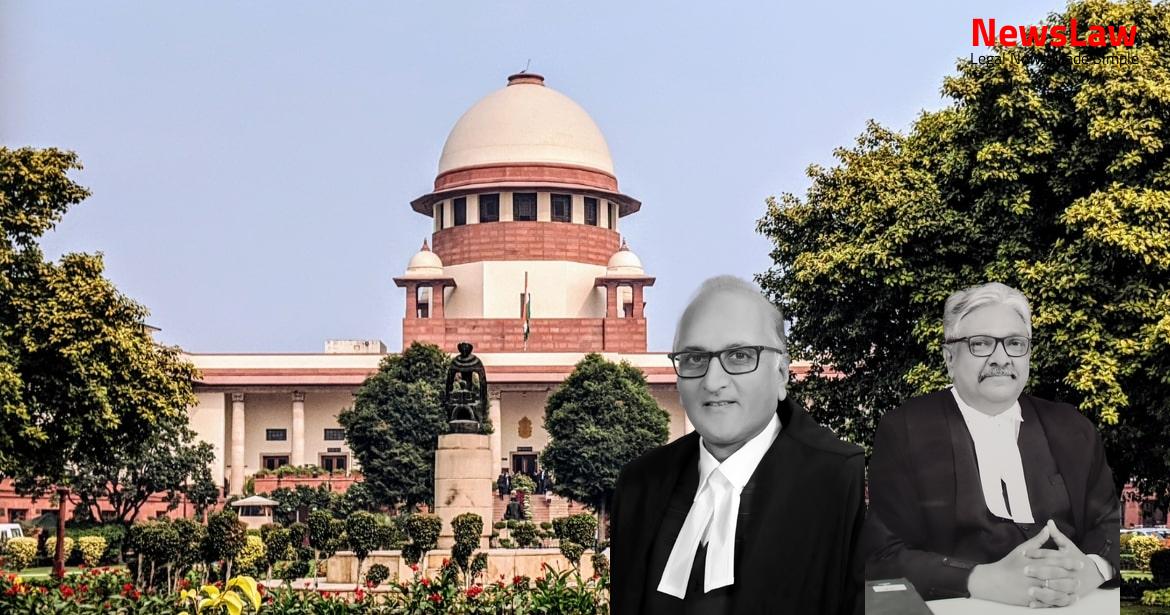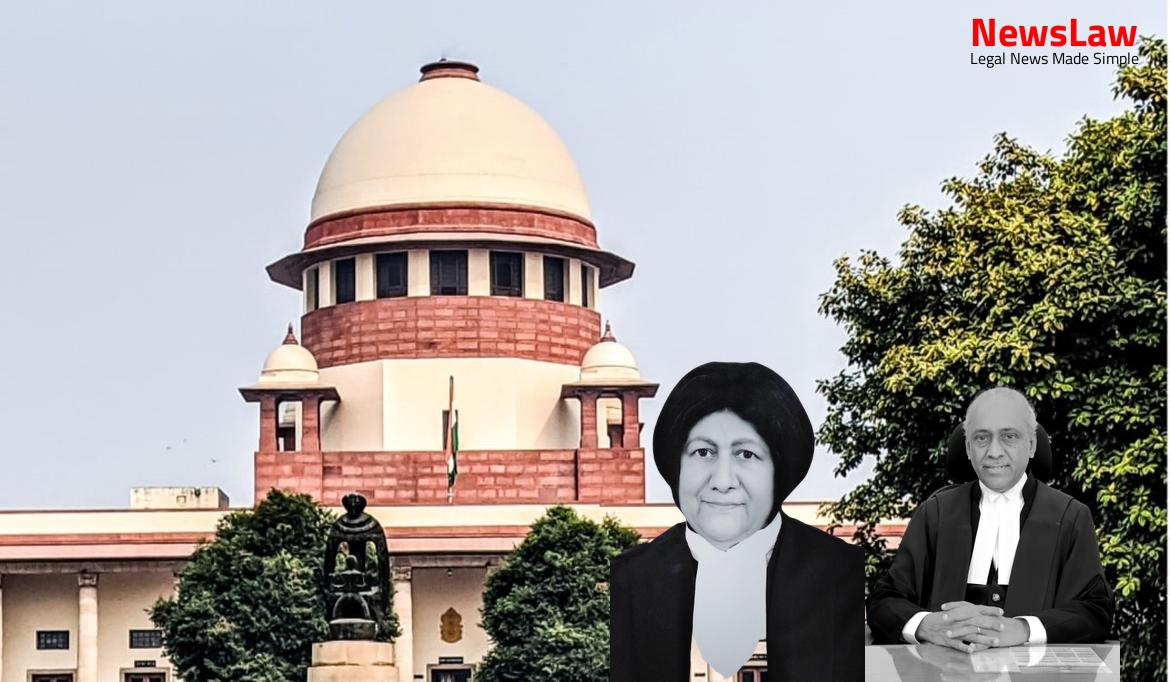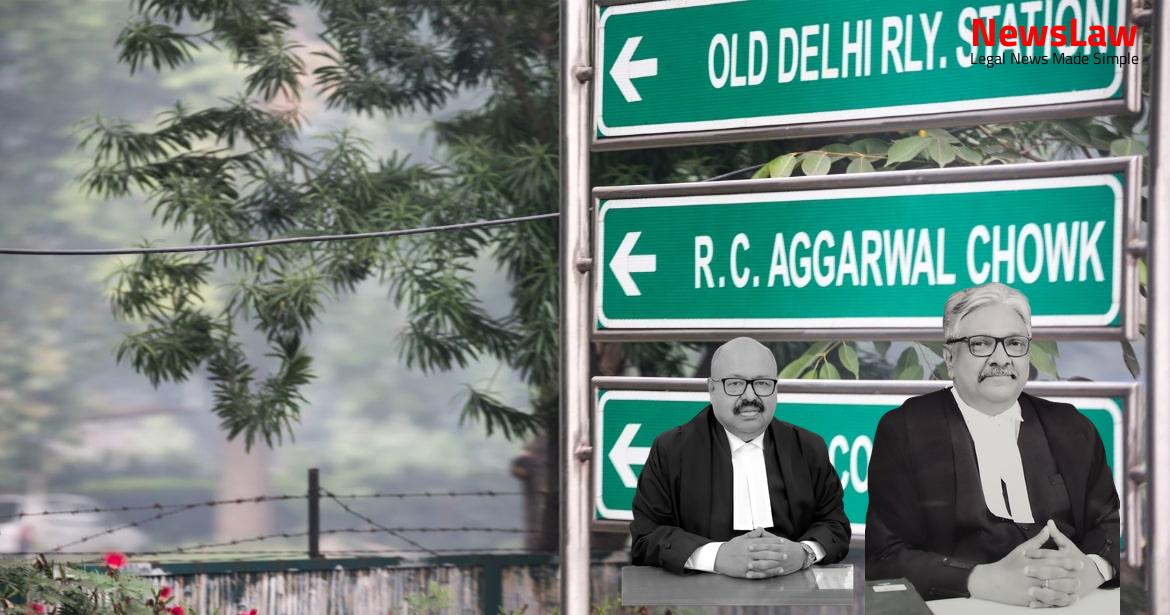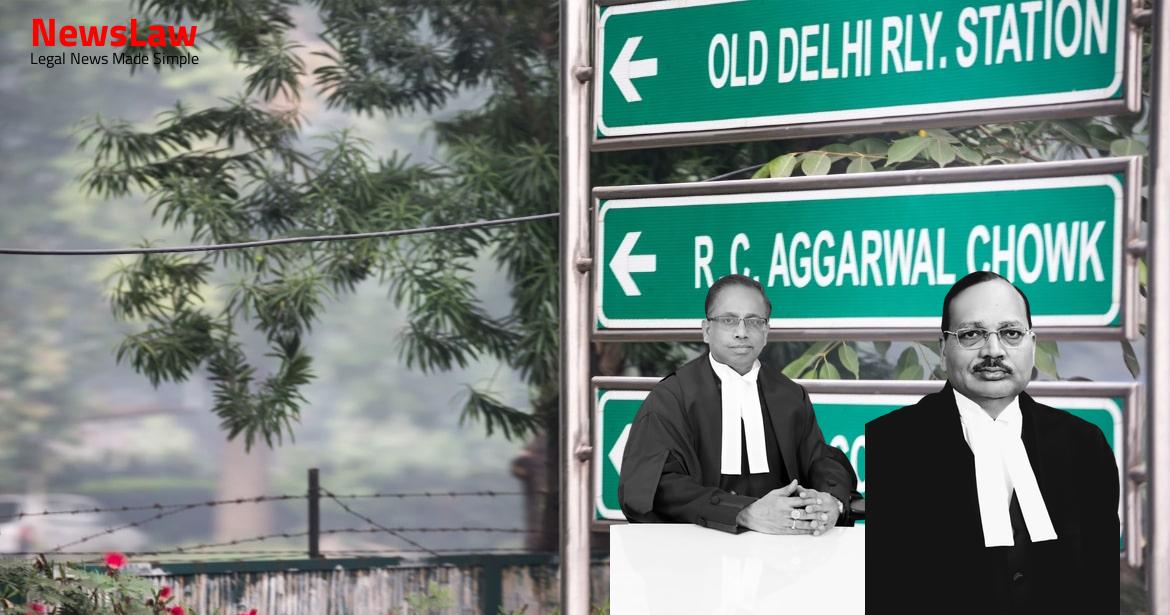Delve into the legal analysis of a complex disciplinary enquiry case where the court’s decisions were under intense scrutiny. Explore the nuances of judicial review, the significance of concrete evidence in disciplinary proceedings, and the delicate balance of upholding fairness in administrative actions. Let’s uncover how the court navigated through various legal aspects to reach a just conclusion in this intricate case.
Facts
- The employee was accused of involvement in disbursing loans to fictitious persons under the Integrated Rural Development Project (IRDP) scheme.
- The loan had a 50-50 repayment and subsidy component, with a total of ₹1,20,000 disbursed.
- An audit revealed that only ₹4,08,833 was reflected in the bank’s subsidy register, with the remaining ₹60,000 unaccounted for.
- The employee allegedly transferred amounts to another bank employee and 12 fictitious beneficiaries.
- The enquiry officer’s report was based on the testimonies of seven beneficiaries who claimed they had not received any loan amount and had not been asked to repay.
- The employee was further implicated based on a confessional statement made by another charged individual.
- Disciplinary proceedings were initiated seven years after the employee’s transfer, with charges including misappropriation of the subsidy amount.
- The Disciplinary Authority relied on the past conduct of the employee and terminated his employment based on the report’s findings.
- The division bench allowed the appeal and overturned the decisions of the appellate and disciplinary authorities.
- The division bench reversed the judgement of a single judge of the High Court who had dismissed the employee’s challenge to his dismissal from the bank’s service.
Also Read: Legal Analysis of Claim for Loss of Profit in Delayed Contract
Arguments
- The High Court re-appreciated the evidence and altered the finding on facts of the disciplinary authority based on insufficiency of evidence.
- Seven individuals deposed that they had not received any loan or subsidy amount, contradicting the employee’s claims.
- The employee authenticated entries made by another individual, casting doubt on the plea of not faulting him for not maintaining the subsidy register.
- The High Court’s conclusion about the enquiry report not being based on evidence was questioned.
- The confession contents were not denied by the employee.
- The High Court’s judgement was deemed erroneous for concluding inadequate evidence of disbursing loans to fictitious persons.
- The judgement’s view on the employee being prejudiced in the enquiry due to non-production of certain documents was contested.
- The judgement’s impact on undermining discipline in banks was highlighted.
- The High Court was criticized for acting as an appellate authority against established legal precedents.
- The review of whether confession statements were admitted into evidence was considered contrary to the record.
- The disciplinary authorities were deemed to have acted within their rights in considering the evidence and imposing the penalty of dismissal.
- The judgement was seen as erroneous for suggesting the dismissal was not based on any evidence.
- The respondent employee was found guilty in the enquiry proceedings.
- The management withheld documents that were directed to be produced in the enquiry.
- The findings in the enquiry report were based on surmises and lacked independent verification.
- No evidence was presented about who liquidated the loan, causing serious prejudice to the respondent.
- The respondent did not sign or admit to the incriminating document used against him.
- The chargesheet was issued much later, and the enquiry was conducted seven years after the incident.
- The enquiry officer relied on a photostat copy of a document claiming admission of guilt without proper verification of its contents.
- Judicial review in departmental proceedings can be sought if the outcome is procedurally unfair, illegal, or based on irrelevant or insufficient facts.
- The conclusion of the third charge against the respondent was deemed as having no evidence to support it.
Also Read: Public Declaration Requirement in Marriage under Hindu Marriage Act
Analysis
- The Tribunal was entitled to arrive at its own conclusion based on the evidence even if taken on face value
- Judicial review can be resorted to in cases of findings beyond the record, mala fide, or perversity
- Scrutiny is necessary to ascertain findings beyond the record or based on irrelevant factors
- Technical rules of Evidence Act do not apply to disciplinary proceedings
- Confessional statement attested by the bank officer was owned up to by the individuals only
- Evidence must definitively link the respondent to the charges; mere omission by a co-employee does not suffice
- The respondent cannot be held responsible for irregularities or omissions of others without direct evidence linking him
- Judicial review does not act as an appellate authority but ensures existence of some evidence to support conclusions
- Enquiry officer’s reliance on extraneous matters was deemed erroneous
- Identity of alleged beneficiaries was not independently proved
- Findings based on a document not admitted into evidence and not signed by the respondent were considered perverse
- No concrete evidence or witness support for the charge of removal of documents by the respondent
- The third charge of misappropriation relied on a confessional statement not by the respondent and lacked concrete proof
- Strict proof of legal evidence is not required in disciplinary enquiries, but some credible evidence must support findings
- Appellate authority has the power to reappreciate evidence or punishment nature, but court’s review under Article 226 is not appellate in character
- Judicial review in disciplinary proceedings is meant to ensure fair treatment, not correctness of authority’s conclusion.
- The court does not act as an appellate authority or re-appreciate evidence, but must base findings on evidence.
- In cases of no evidence, the Government acting bona fide or mala fide may lead to a writ of certiorari.
- Judicial review is not an appeal but a review of the manner in which the decision is made.
- Courts can consider whether relevant evidence was considered and irrelevant facts excluded in determining misconduct.
- Interference under Article 226 of the Constitution is warranted when there is no evidence to establish guilt in departmental proceedings.
- The impugned judgment is considered to be satisfactory based on the discussion and the record.
- There are no faults found in the impugned judgment according to the review.
Also Read: OCI Cardholders’ Rights and Retroactive Notifications
Decision
- The appellant bank’s appeal was deemed unmerited.
- The respondent’s services are directed to be reinstated.
- All benefits for the respondent, including arrears of salary, pay increase, increments, terminal benefits, and potential pension, are to be calculated.
- No costs order was given for the dismissal of the appeal.
- Payment of all calculated amounts must be made within three months from the date of the judgment.
Case Title: UNITED BANK OF INDIA Vs. BISWANATH BHATTACHARJEE (2022 INSC 117)
Case Number: C.A. No.-008258-008258 / 2009



